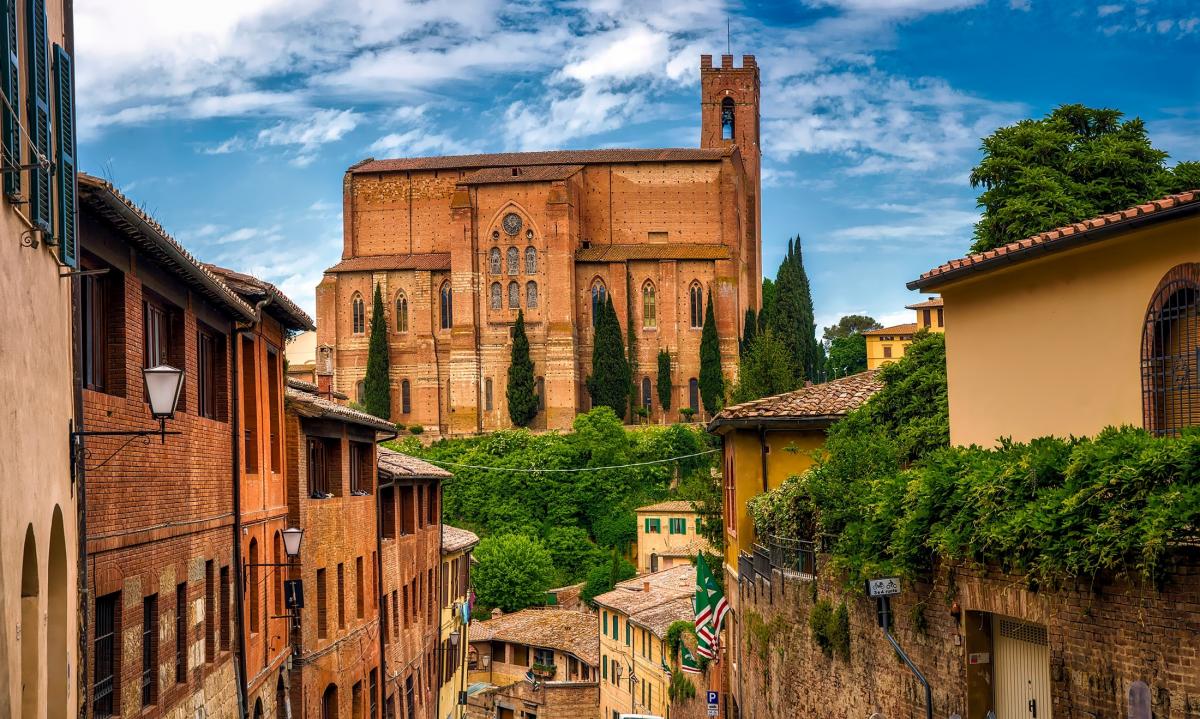
While there are numerous definite and comprehensive anthropological definitions of culture, I’m going to keep it simple: culture is a way of life of a particular group of people at a particular time, encompassing language, religion, cuisine, social habits, and arts. It’s easy to notice culture in general customs and beliefs, as well as the way the group of people in question do everyday things.
Some cultures are massively widespread, some of their parts may even be integrated into other cultures, while others are only known and practised among the borders of their nation, region or group.

For many, the idea of discovering and exploring other cultures is an amazing motivator, as well as one of the main reasons to take the opportunity to study abroad. Humans are naturally curious beings and, other than our insatiable hunger for knowledge, we are also cursed with an inexplicable need to break our well-adjusted routine and disrupt our comfortable lives by throwing ourselves into the unknown. Europe is a cauldron of cultures, and you can decide to move to a country quite similar or completely different than yours. Don’t be surprised if you stumble upon aspects of your own culture on the other side of Europe - being The Old Continent, there’s a high chance your ancestors wandered around and left their mark in various places. However, don’t be surprised if you can’t find any traces of your culture in a country you have always found quite similar to yours, either - culture is passed on from generation to generation by learning, meaning that culture can change.
Here are some of the ways in which your new place of living will probably differ from your current one. Break your old habits and allow yourself to experience the culture of your host country!
The difference in Campus activities

If you enjoy spending your time on your super cool, modern, and chill campus, you’re probably going to be surprised if the city you choose to study in doesn’t have one.
While in some cities faculties are very much centralised, in others they’re scattered all over the place. There are cities which have campuses with gyms, showers, libraries, and cafes, and there are cities which equipped their old, historical buildings for classes instead. And this very much affects the way students both study and socialise. If you’re used to studying and having debates with your peers on campus lawns, leaving your faculty building as soon as your classes are over will require some getting used to.
This will definitely change your daily routine, however, this is also your chance to discover a quite contrasting university culture and places where young people in a different country conduct the same affairs you do in yours. Not many campus cities usually have an abundance of student/youth clubs, cafes, and centres, which is your chance to meet both local and international students of various profiles, simply in a different setting.
The different way in which people socialise

While cities with clubs as centres of social life for youth are quite common, you might find yourself in a city where young people prefer to spend their time elsewhere. Innovative party places such as decorated old factories or warehouses are becoming more and more popular in Central Europe, as well as Silent Disco events in quaint places, like libraries for example. House parties are still a thing, and there are cities where bar culture is wildly popular, so instead of spending time on the dance floor, you might find yourself in a bar, surrounded by people who are either casually chatting or discussing serious life topics.
Reasons for such similar occurrences in youth culture vary. However, they’re mainly connected to the general characteristics of the nation (for example, the majority of the northern nations are calmer, while the majority of southerners are pretty much always down for a good time) or the economic power of youth who would rather invest their money into something other than overpriced clubs.
Sure, clubs are everywhere, since they’re always popular among tourists. Yet, if you wish to spend your time among locals, you’re going to have to change your socialising habits. And you should spend your time among locals because local experiences matter.
A common misconception of Erasmus being a synonym for partying derives from this cultural condition - exchange students aren’t partying too much, they’re simply consuming an integral aspect of foreign youth culture, maybe simply in an increased ratio because of how limited their time is.
The difference in national cuisines

Trying various foods is one of the many joys of travelling, however, moving abroad often means changing your diet completely. You will experience this change in both small things, like being unable to find a drinkable yoghurt, and the big things, like getting used to completely different flavours.
Italians sure do love their pasta, French are big on cheese and bread, and potatoes as a main or side dish are dominating the area stretching all the way between Poland to Russia. The entire Balkan peninsula has been greatly influenced by the Mediterranean, creating a mix of spicy, seasoned, and sweet dishes.
European cuisine is as varied as many countries which make up the continent and while the country may be known for one type of food, traditional cuisine in different regions of the same country may vary. So, if you think you will have to live on spicy goulash for a semester, don’t be surprised if you end up in a region where seafood is a big deal.
However, one of the many perks of studying abroad and living in a multicultural community is the fact that you don’t have to limit yourself to the cuisine of your host country. You and your new foreign friends can easily organise international dinners and introduce each other to the traditional food from your own countries!
The difference in lifestyles

In Portugal, dinner is served quite late. In Spain, the afternoon siesta is mandatory. In France and Balkan countries, coffee culture is pretty strong and includes sipping the same cup of coffee for more than two hours. Apparently, Belgium will make you dependable on trolleys, and The Netherlands on bicycles.
While public transportation is pretty efficient in Europe, in the majority of cases, it doesn’t make sense to use it often in smaller cities. So, if you exchange a big city for a small one, you will also have to exchange your well-trusted metro for walking or cycling.
Coffee To Go is an American invention, yet, cafes in many European cities are now offering this possibility, while in others, cafes are always packed, no matter the time of the day.
Activities in city parks, such as running, various sports, picnics, reading a book or simply chilling on the lawn, may be popular in your city, however, in some cities people simply don’t have a habit of using parks for such activities.
Are you a lover of bistros - small restaurants of Parisian origin that serve moderately priced simple meals in a modest setting? Sorry, some countries simply refuse to nurture the habit of opening such places, meaning you’re stuck with bakeries, fast food chains, and restaurants.
Distancing yourself from a lifestyle you’re accustomed to, your daily habits and routine - basically, everything you’re currently referring to as normal - will make you experience what you probably already know in theory - the fact that people lead different lives. Different lifestyles are a consequence of the events that have happened in the history of a certain group of people, and now you are given an opportunity to share their experiences!
Popular sights and less popular discoveries

A super easy and far more enjoyable way of exploring more of the country’s culture and history is by visiting its sights and landmarks. Popular spots like the Eiffel Tower, Duomo di Milano, and Buckingham Palace are definitely worth visiting. However, you should also pay attention to the city’s less known locations - that’s often where the raw history lies. Hidden corners, narrow streets, and quaint-looking buildings can tell you as much about the city’s history as all the spots you’ve been marvelling over even before you moved there. There are so many sights and landmarks you will discover once you arrive, spots you didn’t even know about, that are a big part of the local culture.
Try to stop by museums, galleries, theatres, and festivals as well, because the treasure inside those institutions truly is an ode to the culture of the place you’re currently living in!
A city you choose for your mobility period will become so much more to you than you expected it to be. It will evolve from a tourist destination, a way station to a second home. Its culture will shock you before it makes you feel alive. You will immerse yourself in this place you chose either randomly or for some very personal reason, and you will make it yours.
And you will leave parts of yourself in it as well.
Once you have experienced multiculturality for yourself, you realise that culture is a very complicated concept and that the word has many meanings - it’s something that’s better experienced than explained.
